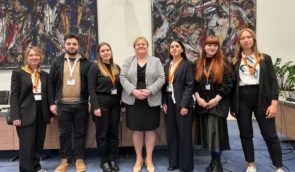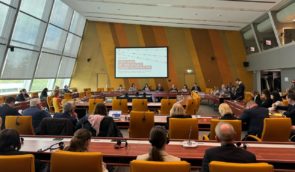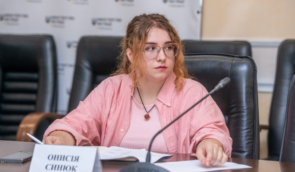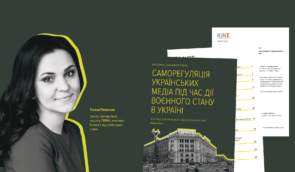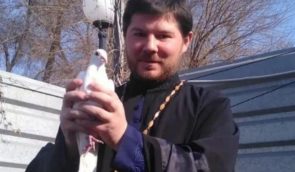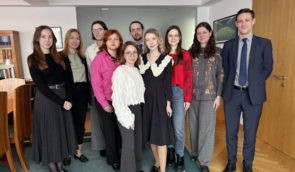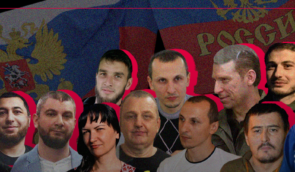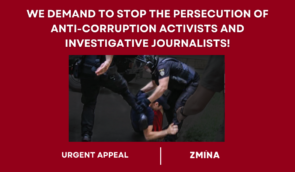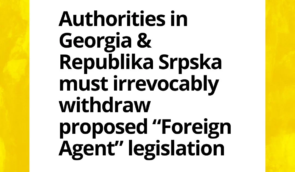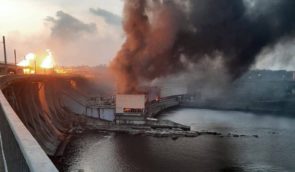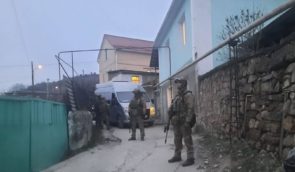Exhibition about Russia’s crimes against media in Ukraine opens in Kyiv
Photo exhibition The War Is Not Over Yet opened in the Taras Shevchenko Park in Kyiv on June 23. The exhibition aims to tell about the journalists who make the world aware of Russia’s war against Ukraine: who have been killed, injured, come under fire, captured or persecuted since the beginning of the full-scale invasion. They are the ones who draw the attention of the international community to the events in Ukraine and remind everyone that the war is not over yet. The photo exhibition records Russian crimes against the media from February 24, 2022.
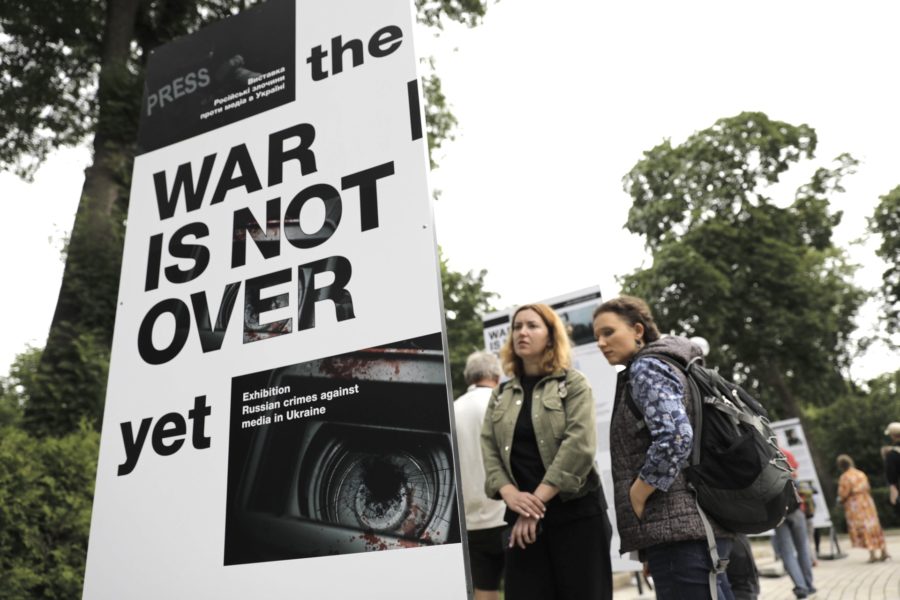
Yuri Makarov and Olha Snitsarchuk became the hosts of the opening ceremony. The exhibition was opened by media professionals who represented their fallen colleagues or told about their work during the war.
Anastasiya Blyshchyk, a journalist and correspondent for Ukraine 24 TV channel, spoke about Oleksandr Makhov, her fiancé, journalist, and serviceman, who had been killed in Kharkiv region on May 4, 2022. He worked for many years for Ukraine and Ukraine 24 TV channels as a war correspondent and covered the war in eastern Ukraine. He went to the combat zone first as a journalist and voluntarily joined the Armed Forces of Ukraine in 2015. Makhov had the Voenkor podcast and conducted training sessions for war correspondents. In October 2021, he began working for Dom TV channel. Makhov went to the front as a serviceman on the first day of Russia’s full-scale invasion. He had the call sign “Journalist”. In April, he turned 36 years old.
“Less than a week before the large-scale Russian invasion, Oleksandr was on a visit to Donbas. On February 24, he came to Kyiv, picked me up from work, we came home, and I told him: ‘You’re tired, you’ve been driving for so long, have a rest, maybe, sleep, and tomorrow we’ll go to a military registration and enlistment office.’ And he told me: ‘Well, you read the news, you see that civilians are dying, my friends are dying, I can’t do that, I won’t fall asleep.’ And then we went with him to the military registration and enlistment office. And for 70 days, he fought for all of us and, in addition to protecting us all, he shot videos on his mobile phone for his future documentary and wrote,” said Anastasiya.
Radio Liberty correspondent Maryan Kushnir also spoke about the specifics of work during the war. On March 11, 2022, he suffered a concussion in a Russian missile strike in Baryshivka, Kyiv region. In recent months, Kushnir has been working in Kharkiv and Donetsk regions.
“We are losing our colleagues, but when we went to the war to film it, we knew that not all of us would return. The war is not over yet, not all of us will return, unfortunately… I don’t think it’s worth standing and crying now. The war will end, we will realize, cry and we will move on, keep developing our journalism,” Maryan Kushnir believes.
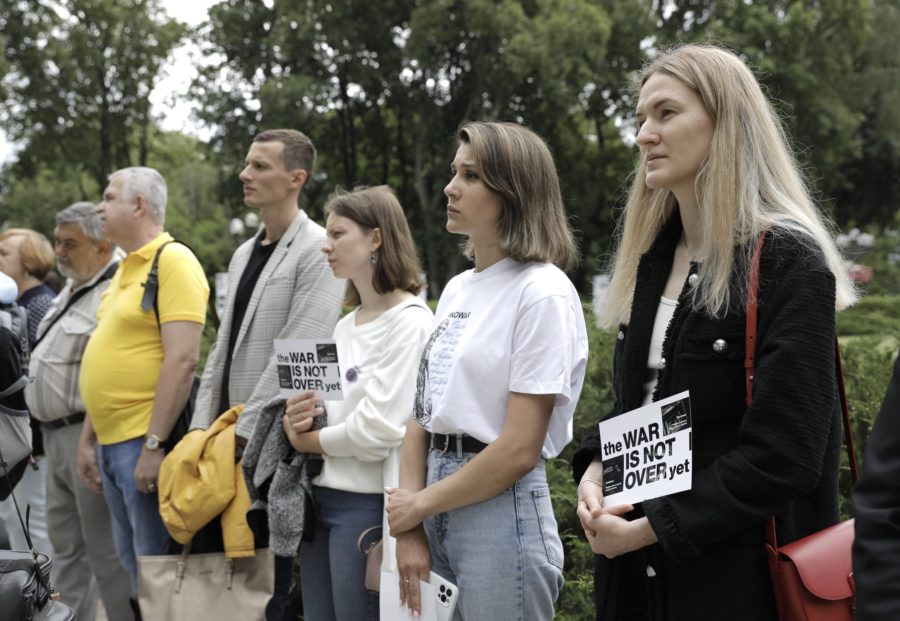
Sevgil Musaieva, editor-in-chief of the Ukrayinska Pravda online media outlet, spoke about her classmate, American journalist Brent Renaud, who had been killed in the line of duty in Irpin, Kyiv region, on March 13, 2022. That day, he and a colleague filmed the evacuation of Irpin residents. After crossing a roadblock, Russians shot a car with journalists. Brent Renaud received a fatal wound to the neck. His colleague survived.
“Journalists are always in a hurry, they always want to be the first to report some news. But in my case, it was very scary when I called my sister at eight o’clock in the morning New York time to say that her loved one had been killed and, unfortunately, I could only deliver his body to the United States. The whole world will see the film that Brent made. His colleagues, all of us, did everything possible to make this happen. I think we will be impressed with this work. This is a very important part – for the world to see the truth about what civilians are going through in Ukraine,” Sevgil Musaieva stressed.
Photojournalist Maks Levin was also mentioned at the ceremony. Photographer Oleksiy Furman and director Petro Tsymbal told the story of their colleague. On March 13, Levin and Oleksiy Chernyshov, a serviceman and a former photographer, drove to the village of Huta Mezhyhirska, to film the aftermath of the Russian invasion. They got out of a car and headed towards the village of Moshchun, after which the connection with both of them was lost. On April 1, the police found their bodies. According to Reporters Without Borders’ investigation, both men could have been executed by the Russian military. This year, the jury of the Georgy Gongadze Prize awarded Maks Levin a special prize “For outstanding contribution to the development of Ukrainian photography, devotion to profession and courage.”
The photo exhibition The War Is Not Over Yet in the Taras Shevchenko Park will last until July 6. Then it will be moved to Boyarka, the hometown of murdered journalist and photojournalist Maks Levin.
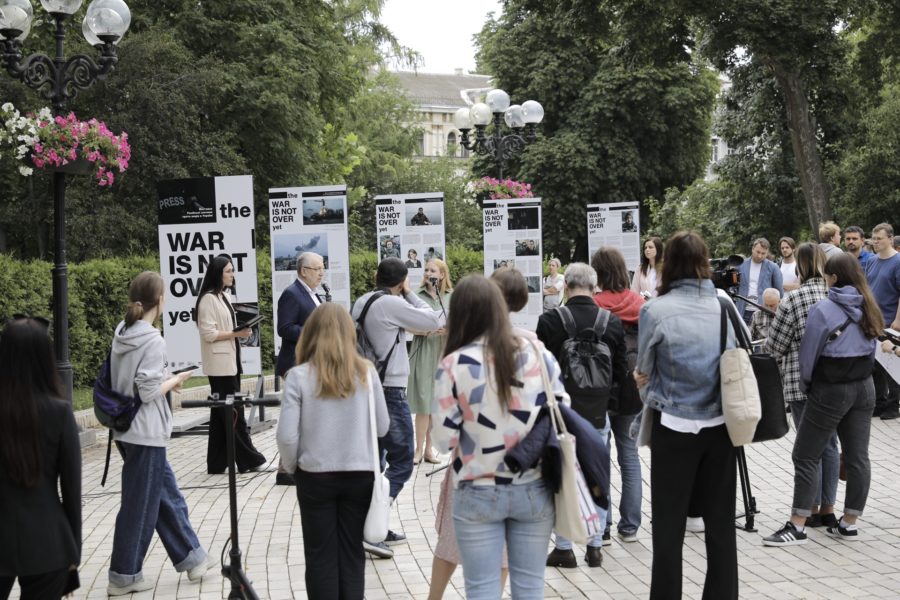
Video from the exhibition opening is available here.
At the time of preparing the exhibition (June 21, 2022), 33 Ukrainian and foreign journalists were killed (according to the Institute of Mass Information data). Eight of them were killed in the line of duty, 25 – as combatants or as a result of Russian shelling or torture. At least 13 more journalists were injured and at least 15 went missing.
Exhibition organizers: PEN Ukraine, Institute of Mass Information, Human Rights Centre ZMINA, National Museum of the Revolution of Dignity, Lviv Media Forum, Georgy Gongadze Prize supported by Shevchenkivsky District State Administration of Kyiv City and Kyiv City Center for Folk Art and Cultural Studies.

